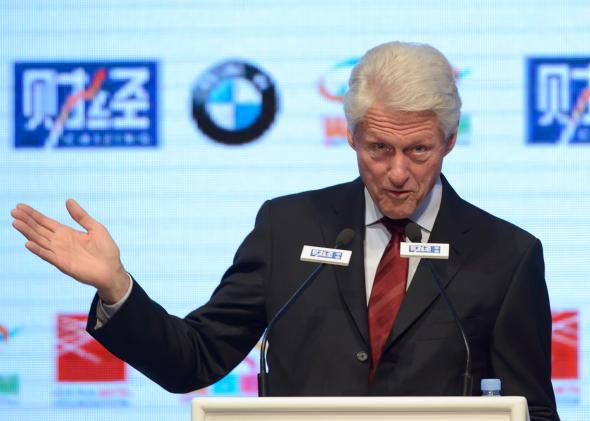They say a liberal is someone who doesn’t know how to take his own side in an argument, and the latest paper from former Clinton administration official Alan Blinder and co-author Mark Watson seems to confirm it. The paper looks at the well-established fact that GDP growth under Democratic Party presidents is more rapid than under GOP Presidents, and concludes that it’s all just a coincidence.
Except they don’t mount a very strong argument for that conclusion.
Just start with the bare conclusion—the economy does better under Democratic presidents. Without any further analysis, I think we have strong reason to believe that this is luck. The federal government has only a limited short-term impact on the economy, and the president has only a limited short-term impact on federal policy. Between the operationally independent Federal Reserve and the frequency of divided government, just because something happens when Barack Obama or Ronald Reagan or LBJ is president doesn’t mean it was his idea.
But the basic method of the paper is just to parse the growth gap into separate bits, and then separately pronounce each one coincidence. That doesn’t add anything to the story. If anything, there decomposition makes me less likely to see the gap as just dumb luck. Here are there four factors:
— Consumer confidence is higher under Democrats: 25 percent.
— Fewer adverse oil shocks under Democrats: 12.5-25 percent.
— More positive TFP shocks under Democrats: 25 percent.
— Unexplained: 25-37.5 percent.
Lets take this in order. Consumer confidence is definitely something you could imagine the President being able to impact despite central bank independence and the separation of powers. People think of Democrats as representing majoritarian economic interests and unpopular secularism and internationalism. So when a Republican gets in, they expect America to stand tall on the world stage and stand up for core moral values but perhaps give short-shrift to the middle class. When a Democrat gets in, it’s just the opposite. So Democrats = more confidence.
Then there’s oil. The balance of powers is tilted much more toward the president and away from congress in the foreign policy and national security realm. It’s no surprising that Republicans’ more confrontational approach to international relations leads to more frequent oil supply disruptions.
Now you come to TFP. If TFP growth were slower under Democrats, then I promise you conservative economists would cite this as evidence that Democrats are obviously promoting productivity-killing regulations. But perhaps that’s 180 degrees backwards. Perhaps Republicans, as the party of business, are much more likely to engage in pro-incumbent regulatory decision-making while Democrats who are cross-pressured from a wider range of interest groups (big business has a voice in Democratic administrations, but labor and environmental groups are totally frozen out of GOP ones) do better at making decisions in the national interest.
The unexplained bit I guess we have to call luck because it’s unexplained.
Now do I expect conservatives to find this argument plausible? Of course not. Conservatives wouldn’t be conservatives unless they had a strong ex ante commitment to the view that conservative public policy ideas are good. The superior performance under Democratic presidents is clearly far too weak to persuade them otherwise. But say you’re a moderately liberal Democrat who’s inclined to believe the kinds of policies moderately liberal Democrats pursue are good ones? The Blinder-Watson decomposition looks to me like a confirmation of that principle—Democrats do a better job of managing foreign affairs, of instilling confidence that government is on the side of the middle class, and of promulgating federal regulations in the public interest.
